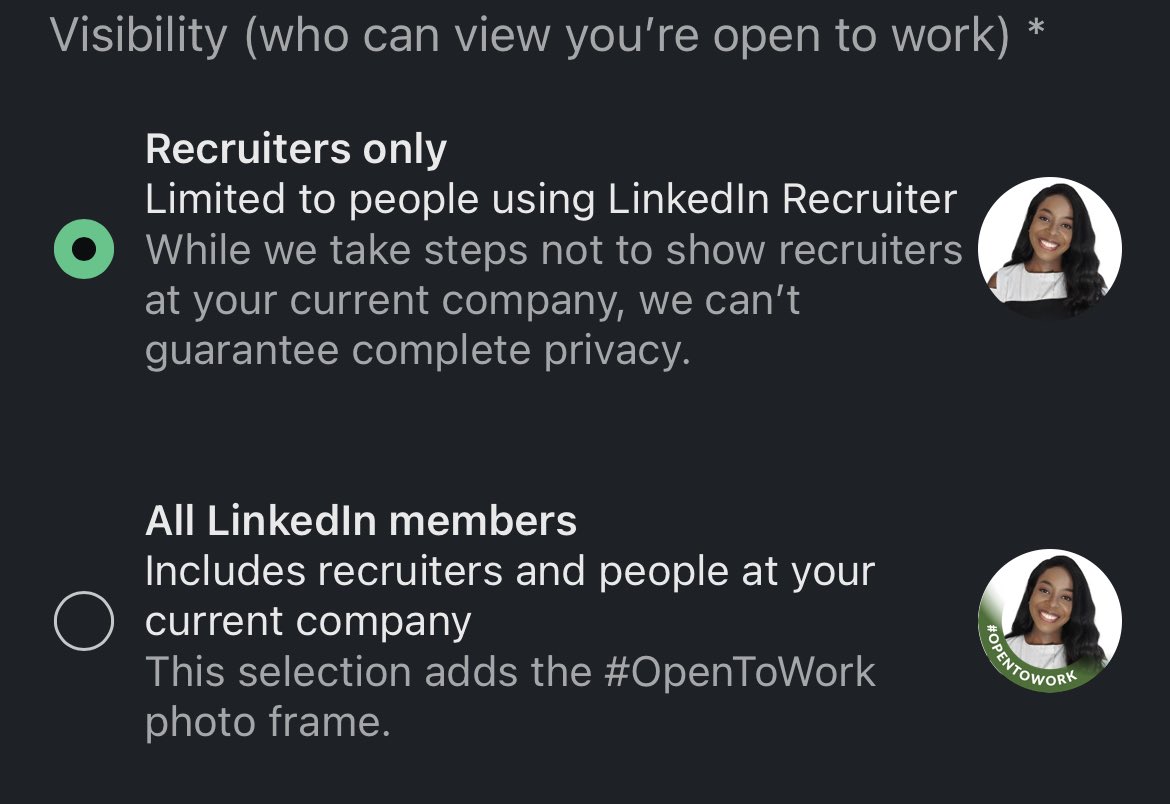Tips for Getting Recruiter inMails on LinkedIn 🧵
Talent hunters actively seek professionals on LinkedIn for roles. Remember, inMails are your ticket to HR screening, getting you closer to your dream job. Use these tips in conjunction with direct job applications. #jessithreads
Talent hunters actively seek professionals on LinkedIn for roles. Remember, inMails are your ticket to HR screening, getting you closer to your dream job. Use these tips in conjunction with direct job applications. #jessithreads
Before we kick off & so you know I’m not blabbing ☺️, these are recent inMails I received. I know others getting same. Note that not all jobs might be suitable for you. If you find a good fit and indicate interest, it gets you to the phone screening stage.






I’ll start with Mid-level professionals & Entry level/Career transition folks will follow.
For Mid-level: >2yrs exp
1. Have an updated profile: This is a no-brainer. Ensure you a summary of your accomplishments each employment listed. Use the “Did X using Y to get Z” method.
For Mid-level: >2yrs exp
1. Have an updated profile: This is a no-brainer. Ensure you a summary of your accomplishments each employment listed. Use the “Did X using Y to get Z” method.
2. Skills section: This is as important as the first. LinkedIn uses your skills and work experience to match you to recruiters. Update your skills to match what what’s in demand in your industry. Max 50 skills. Take skills quiz & link the skills to the various jobs you’ve held. 

3. Open to Work: Now if you’re employed and don’t want your employer to know you are searching, set your open to work visible to only recruiters ☺️. Example below. If you’re actively looking, by all means, choose the other option. 

4. Final tip for mid-level folks before we move to entry level & those transitioning careers
Post your thoughts on Linkedin often - could be something you learnt at work, insights on your industry. I don’t think these have as much impact but it definitely expands your reach.
Post your thoughts on Linkedin often - could be something you learnt at work, insights on your industry. I don’t think these have as much impact but it definitely expands your reach.
InMail Tips for Entry level and folks transitioning to a new career.
1. Share your Projects: As you work on projects, please share them. This an inMail I got from a hiring manager in 2021 when I was transitioning to data analytics. She saw my project on Linkedin and reached out.
1. Share your Projects: As you work on projects, please share them. This an inMail I got from a hiring manager in 2021 when I was transitioning to data analytics. She saw my project on Linkedin and reached out.

2. Make your past employment align with the job you’re searching for. For example, If you are a teacher transitioning to data analytics, let the accomplishments be tailored towards data-related activities.
Ex: Created automated Excel Sheet to track students performance which…
Ex: Created automated Excel Sheet to track students performance which…

3. Update skills section. Same as I explained earlier.
4. Remove words “enthusiast”, “aspiring” “amateur” from your LinkedIn intro as they don’t inspire confidence
5. Look at profiles of professionals in your field and get inspiration. This is probably the best tip lol.
4. Remove words “enthusiast”, “aspiring” “amateur” from your LinkedIn intro as they don’t inspire confidence
5. Look at profiles of professionals in your field and get inspiration. This is probably the best tip lol.
Thanks for reading. I hope you all get your dream jobs and found this somewhat useful.
Leave questions or more tips if you have them below. Have a great weekend ✌🏽
Leave questions or more tips if you have them below. Have a great weekend ✌🏽
• • •
Missing some Tweet in this thread? You can try to
force a refresh

 Read on Twitter
Read on Twitter



